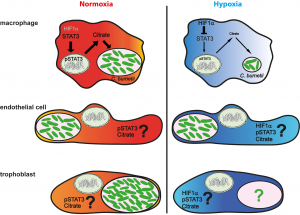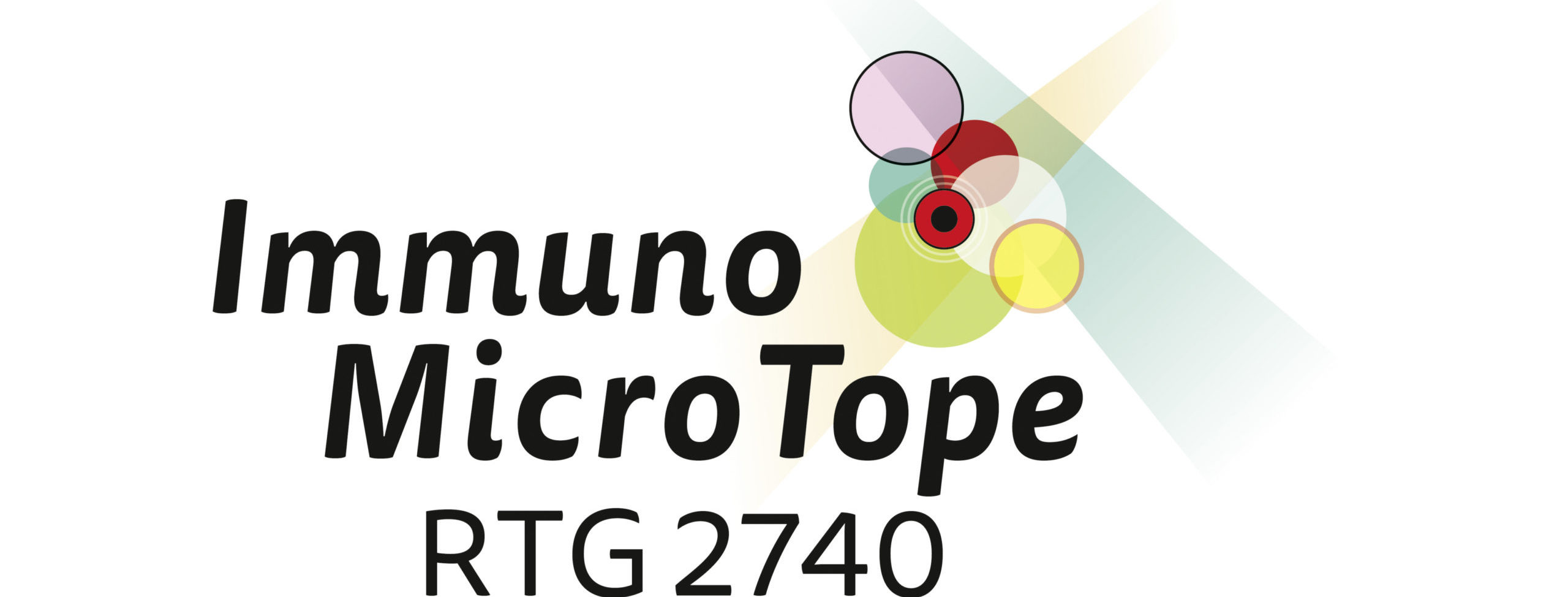A3: Induction and regulation of Coxiella burnetii persistence by microenvironmental factors
A3: Induction and regulation of Coxiella burnetii persistence by microenvironmental factors
Coxiella (C.) burnetii is the causative agent of the zoonotic disease Q fever, which can be either acute or chronic. While acute Q fever is a flu-like illness, chronic Q fever mainly manifest as a potentially life-treating endocarditis month or years after primary infection. The period prior outbreak of chronic Q fever is characterized by bacterial persistence, a physiologically dormant state that can cause relapsing infections and antibiotic resistance. Currently, it is unknown how C. burnetii persistence is induced or regulated.
We hypothesize that micromilieu factors are decisive for the outcome of C. burnetii infection. Indeed, host cell metabolites influences C. burnetii infection. Thus, the TCA metabolite citrate support bacterial replication, while itaconate has anti-bacterial activity. In addition, our results suggest that a micromilieu with reduced oxygen availability (hypoxia) induces C. burnetii persistence. We are currently investigating how hypoxia influences the host cell metabolism and immune response during infection. Furthermore, we are characterizing the state of bacterial persistence. Thus, we are performing EM analysis, qRT-PCR and sequencing experiment and antibiotic resistance assays. In addition, we are investigating the ability of persistent bacteria to infect cells and resist elimination by the host cells.

In macrophages C. burnetii are unable to replicate under hypoxic conditions. Hypoxia induces the stabilization of HIF1α, which in turn reduces the activation of STAT3. This leads to reduction of the TCA metabolite citrate, and a subsequent inhibition of C. burnetii replication (Hayek et al. 2019, Cell Reports). In contrast, C. burnetii replicates equally well in normoxic and hypoxic endothelial cells. The underlying reason is unclear.
Supervisor
Prof. Dr. rer. nat. Anja Lührmann
91054 Erlangen
- Phone number: +49 9131 85-32577
- Email: anja.luehrmann@uk-erlangen.de
- Website: http://www.mikrobiologie.uk-erlangen.de/
PD Dr. Katja Dettmer-Wilde
93053 Regensburg


